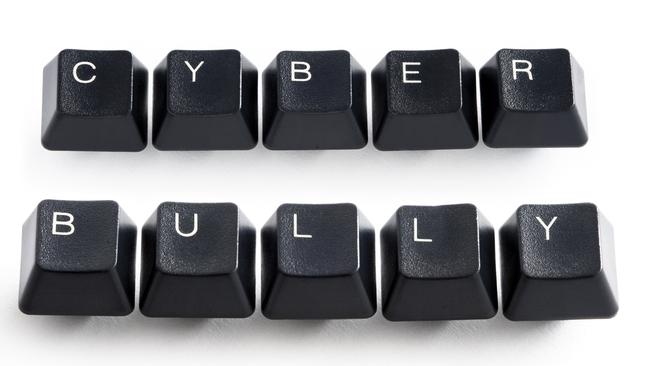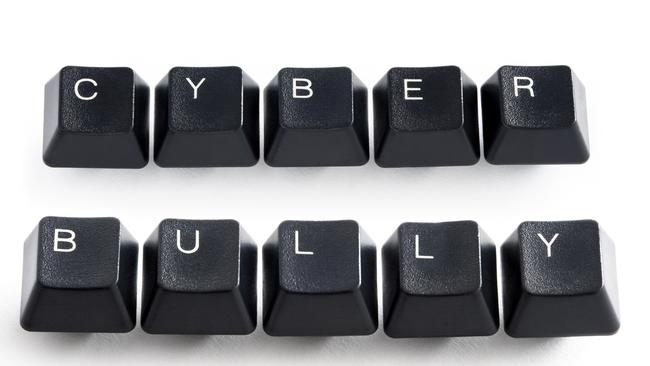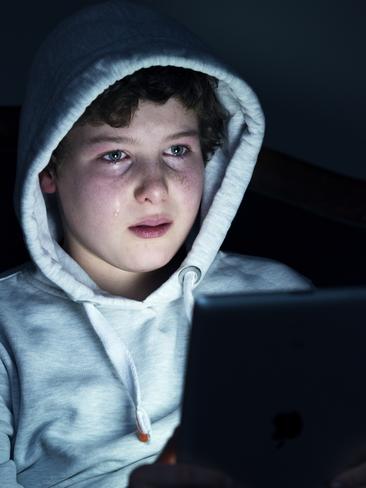Year 6 kids will be given a digital licence under a new program for online safety
GRADE six students will have to learn how to deal with internet trolls, post safe photos online and much more under a new online safety education program.

GRADE six students will learn how to deal with internet trolls, post safe photos and recognise spam emails in a groundbreaking new education program designed to keep kids safe online.
The Alannah and Madeline Foundation has developed a quiz-based program to allow pre-teens to obtain their “digital licence” so they can better navigate the perils of cyber space.
The program, which will be made available to every Year 6 student in Australia because of funding from internet giant Google, teaches kids how to deal with approaches from strangers online.
It also gives them information on how to understand the privacy settings on social media apps, tips on what to think about before sharing selfies, comments and videos, and how to turn off the location settings on mobile devices so they can’t be unwittingly tracked.

Even a run down on identifying popular emojiis and cat-memes are included in the games-based licence, which AMF chief executive Judith Slocombe said was developed in consultation with internet safety experts, teachers, and child psychologists.
“We’ve looked all over the world and there is nothing that is as complete and holistic and covers all the topics that this does,” Dr Slocombe said.
“You can never guarantee that a kid is safe online, and it still takes parents using common sense, but parents can get comfort from the fact that this is rich as substantial enough that their children will learn about the risks online and come out with skills on how to deal with them,” she said.
Parliamentary secretary for Communications, Paul Fletcher, who will help launch the program in Sydney today, praised it as a practical and innovative way to engage 11 and 12-year-olds in a discussion about online safety risks.

“Clearly the internet and social media are a central part of the lives of children and young people, and they bring up a new set of issues,” Mr Fletcher said.
“Just like road safety, and water safety, or like educating kids about drug and alcohol use and sexual behaviour, this is another set of issues that kids need to be educated about,” he said.
The program has been embraced by concerned mums and dads, many of whom have little knowledge of the programs and apps their kids use.
CRACKDOWN: Twitter, Facebook, Instagram targeted in cyber-bullying laws
PROBLEM: Australian children most worried about bullying, data reveals
Port Melbourne mum Andrea Appleby said she would welcome any educational tool that help her discuss the risks of the internet with her daughters, Olivia, 13 and Maddy, 9.
“It’s not easy, because as parents we don’t know a lot about what they are accessing, I trust and respect (my daughters) but you really want to keep them safe from bullying, identity left and predators,” she said.

Ms Appleby said she has already tried to speak with her girls about what sort of photos are appropriate to upload to sites such as Instagram, but she believes having a program that reinforced that in schools would be great for children.
Bellevue Hill mum Reina Nicholls, whose twin daughters Penelope and Georgina started high school this year, said it was very difficult for parents to familiarise themselves with everything their children did online.
She welcomed an educational program which could help teach kids about the risks of the internet.
“We did try to make our daughters understand that in the same way that we would have stranger danger on the street, there was also cyber stranger danger,” Ms Nicholls said.
“It’s important for the 10-12 year old age group to understand that what they perceive to be innocuous material might be used by somebody not in the 10-12 year age range for purposes unintended,” she said.



